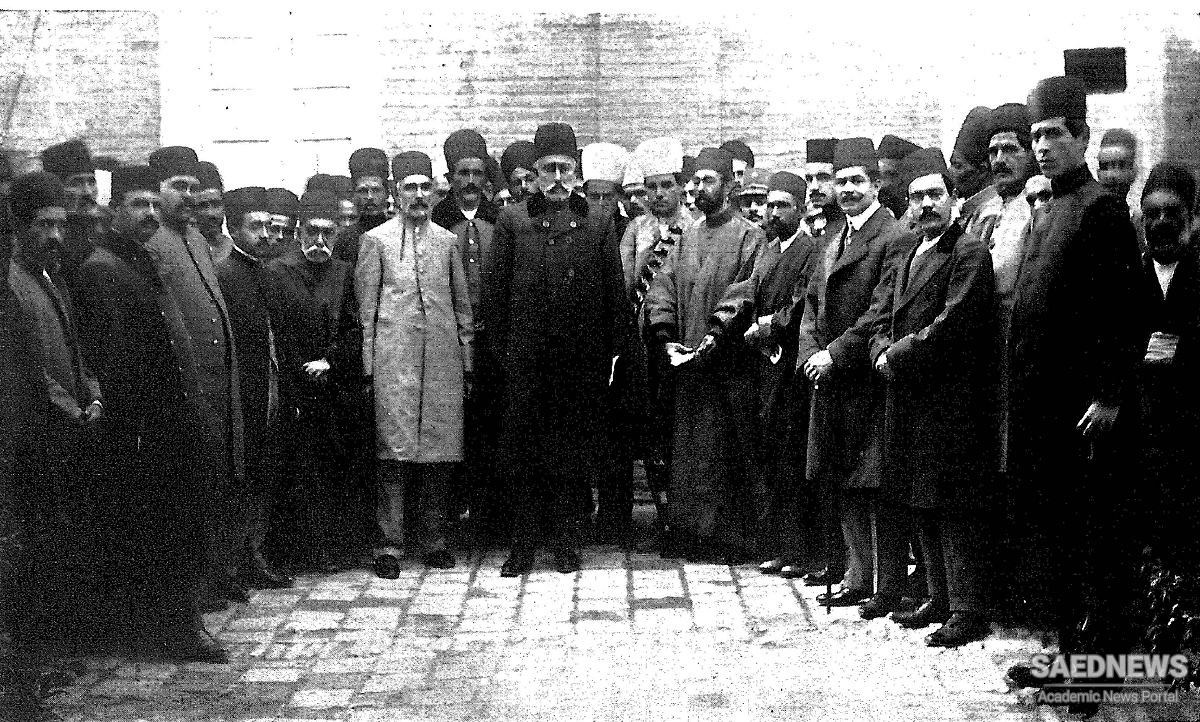Seeking another pretext to humiliate, and eventually eliminate, the parliamentary regime, in October 1911 the Russian minister in Tehran served an “ultimatum,” demanding that the Iranian government formally apologize for the “insult” committed against the Russian consul general or face immediate military consequences. The apology sought from the Iranian government was in response to the Majles’ authorization of the Treasurer General Shuster to confiscate the properties of the treasonous Salar al-Dowleh and his brother Sho’a’ al-Saltaneh, the chief perpetrators of the counterrevolutionary plot. Under the pretext that the latter prince had secured a loan from the Russian Mortgage Bank the Russian consul general subsequently ordered the Cossack officers to occupy the prince’s residence as collateral and force out Shuster’s agents who had come to appropriate the residence. The vengeful consul offered an equally fictitious claim that the prince was a Russian protégé and therefore subject to capitulatory rights extended to Russian subjects.
Fearful of dire consequences, the Iranian government succumbed to the threat of brute force. To appease St. Petersburg, the Iranian minister of foreign affairs arrived in person to the Russian legation and offered a formal apology on behalf of his government. Yet there was no end to the demands of the two powers or their shared desire to dismantle Iran’s young democracy. Almost immediately after the so-called satisfaction was given, on November 29 the Russian government served a second ultimatum to Iran, this time openly backed by Britain.
In a rare expression of international bullying, the second ultimatum required Iran to immediately fulfill three conditions or else face Russian military occupation, and in effect an end to its national sovereignty. It demanded that Morgan Shuster be dismissed from his post of treasurer general together with his American colleagues. It also demanded that in the future, the Iranian government not engage the service of foreign nationals without the consent of the two powers. Most outrageous of all, the ultimatum demanded that the Iranian government pay “indemnity” for the “expense of the present dispatch of troops” to Iran, the amount and manner of which was to be determined later. This demand was made at a time when Russia had landed more troops in Gilan and Azarbaijan provinces to reinforce its so-called zone of influence. The two powers in effect blatantly required that Iran reimburse the cost of the violation of its own sovereignty to an aggressor who, as it turned out, went on a rampage of massacres and maltreatment of defenseless Iranians.
The second ultimatum, even more than the first, raised a storm inside and outside the Majles, leading to a nationwide movement of outrage, speeches in mosques and the Majles in support of Shuster, and telegraph messages of solidarity from the provinces. The Shi‘i clerical condemnations of the Europeans’ nefarious designs on the constitutional regime and the oppressed Iranian nation were headed by Mohammad Kazem Khorasani and his colleagues in Najaf. They called for the boycott of Russian and English goods in the bazaar, the revival of armed revolutionary anjomans, and the elimination of the royalists.
A rare voice of protest was also raised by women, who for the first time in public acted on their own—not merely beside their male relatives—to call for a struggle against the nation’s foreign and domestic enemies and support for the constitutional government and adoption of modern social and ethical values. It was as if the spirit of mashruteh had been resurrected. Except this time it became painfully evident that the primary terminator of Iranian aspirations was not the Qajar regime and its clerical allies, but the dictates of European grand strategy—this even before a drop of Iranian oil had reached Europe’s Great War.


 Morgan Shuster Arrives in Iran
Morgan Shuster Arrives in Iran














































